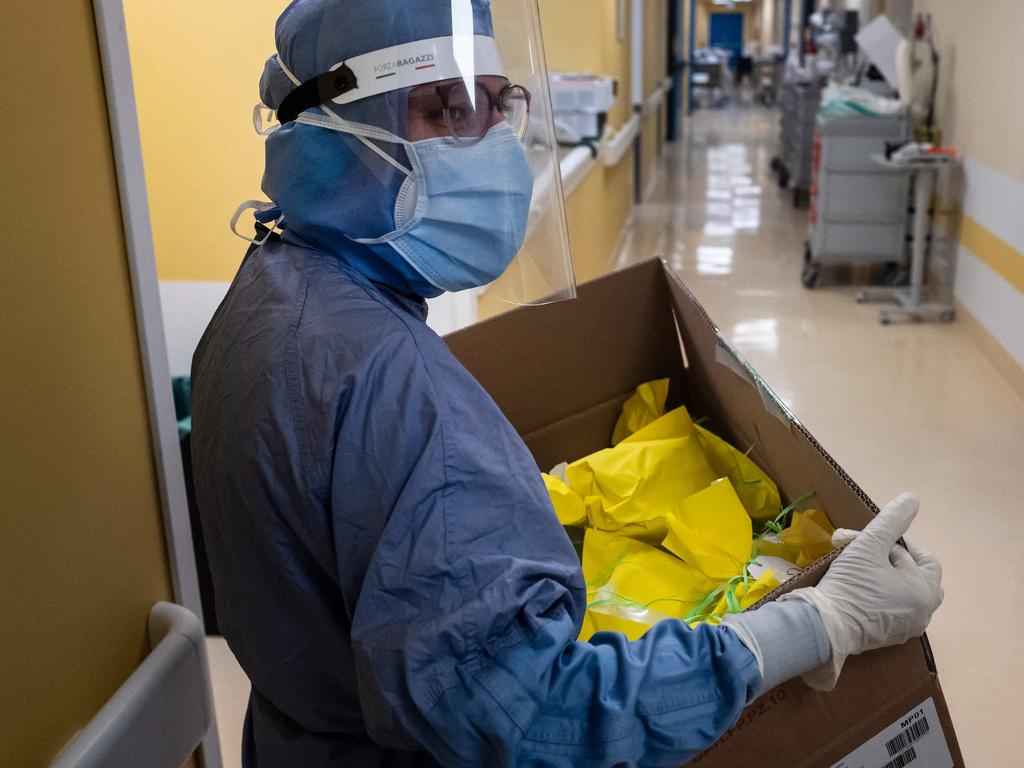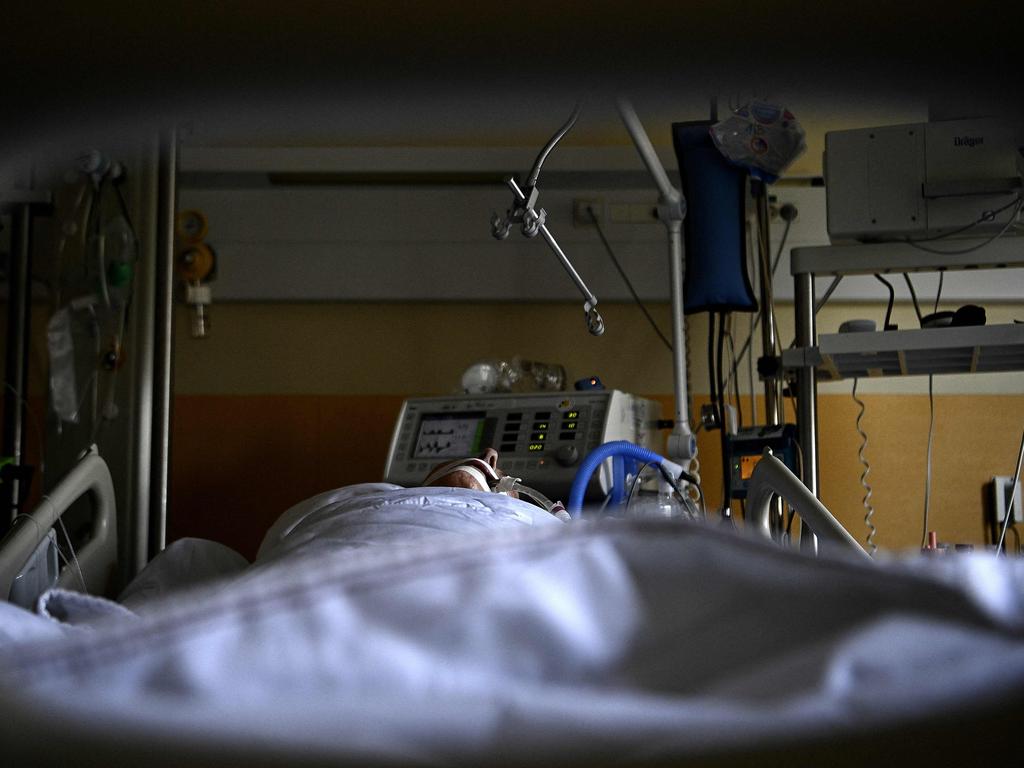COVID-19 and mental health: Lancet study shows link to neurological and psychiatric problems
The largest study yet into the link between COVID-19 and mental health disorders has revealed a troubling correlation for patients months after their illness.

About one in three COVID-19 survivors experience mental health disorders within six months of their infection, according to the largest study of its kind to date.
The observational study of more than 230,000 patient health records published in The Lancet Psychiatry journal found that an estimated 34 per cent of patients received a neurological or psychiatric diagnosis after catching the virus.
For 13 per cent of these people it was their first recorded mental health diagnosis.
The most common issues were anxiety disorders (in 17 per cent of patients), mood disorders (14 per cent), substance misuse disorders (7 per cent), and insomnia (5 per cent).
Neurological issues were less common, with 0.6 per cent suffering a brain haemorrhage, 2.1 per cent an ischaemic stroke, and 0.7 per cent dementia.
The risk was highest for people who had experienced severe COVID-19, with a mental health diagnosis given to 38 per cent of those who had been admitted to hospital, 46 per cent of those who were in intensive care, and 62 per cent of those who experienced delirium during their illness.

RELATED: How to talk about mental health at work
Professor Paul Harrison, lead author of the study, from the University of Oxford, said the findings “confirm the high rates of psychiatric diagnoses after COVID-19, and show that serious disorders affecting the nervous system (such as stroke and dementia) occur too”.
He said that while these neurological disorders were much rarer “they are significant, especially in those who had severe COVID-19.”
The records of 236,379 COVID patients from the US-based TriNetX network were compared with 105,579 patients diagnosed with influenza and 236,038 patients diagnosed with any respiratory tract infection.
Taking into account characteristics such as age, sex, ethnicity, and existing health conditions, there was a 44 per cent greater risk of a mental health diagnosis after COVID-19 than after flu, and a 16 per cent greater risk after COVID than with respiratory tract infections.
“Although the individual risks for most disorders are small, the effect across the whole population may be substantial for health and social care systems due to the scale of the pandemic and that many of these conditions are chronic. As a result, health care systems need to be resourced to deal with the anticipated need,” said Professor Harrison.

RELATED: Young women struggling with COVID mental health
Mental health organisations raised the alarm over the affect of COVID and associated lockdowns on people’s psychological emotional wellbeing.
Data from SEEK confirms that 56 per cent of Australians are more aware of their mental health due to COVID-19, with 45 per cent of respondents agreeing that the pandemic impacted their mental health.
Modelling has indicated there will be a 30 per cent increase in demand for care long after COVID-19 is a thing of the past. “We’re going to see threats to mental health like we’ve never seen before,” Professor Patrick McGorry, executive director of Orygen and a youth mental health expert at the University of Melbourne, told news.com.au last year.
He said that most people won’t become ill and need care, but may feel anxious, stressed and pessimistic.
“It will be in people with existing mental health conditions who will relapse, and they certainly are now, but there will be a group without a history who will go over the edge,” he said.
The latest research, funded by the National Institute for Health Research (NIHR) Oxford Health Biomedical Research Centre, is the first large-scale data examining the risks of neurological and psychiatric diagnoses in the six months after COVID-19 infection.
Dr Max Taquet, a co-author of the University of Oxford study, said: “Our results indicate that brain diseases and psychiatric disorders are more common after COVID-19 than after flu or other respiratory infections, even when patients are matched for other risk factors. We now need to see what happens beyond six months. The study cannot reveal the mechanisms involved, but does point to the need for urgent research to identify these, with a view to preventing or treating them.”
Many people with COVID-19 have mild or no symptoms and do not require health care, so the people in this study likely to have been more severely affected than in the general population. The severity of their disorders is also not known.
Dr Jonathan Rogers, who was not involved in the study, from University College London, said researchers “need to be able to observe and anticipate the neurological and psychiatric outcomes of future emerging health threats by use of massive, international, real-world clinical data” and that countries with public health systems should provide this.
“Sadly, many of the disorders identified in this study tend to be chronic or recurrent, so we can anticipate that the impact of COVID-19 could be with us for many years,” he added.



